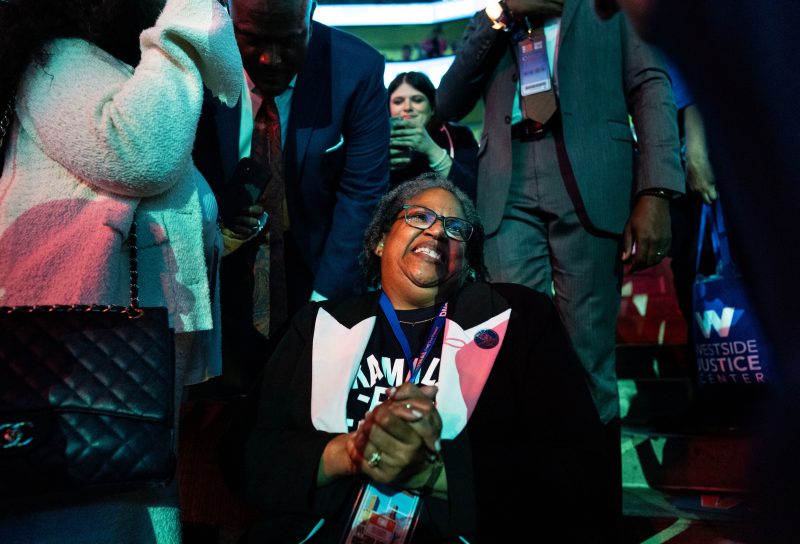
Kamala Harris Making History: Celebrating Successes and Facing Challenges Ahead for Black Women Leaders
In the eyes of Black women leaders, Kamala Harris’s rise to the position of Vice President of the United States signifies not only historic strides but also the continued work that lies ahead. Harris, a woman of Jamaican and Indian descent, shattered numerous glass ceilings as she claimed victory in the 2020 presidential election alongside President Joe Biden. This significant milestone not only symbolizes progress for women and people of color but also signals the ongoing struggle for equality, representation, and justice in American society.
One key aspect highlighted by Black women leaders is the significance of Harris’s achievement in paving the way for future generations. As the first woman, first Black person, and first Asian-American to hold the second-highest office in the United States, Harris has undoubtedly become a role model for young girls of diverse backgrounds. Her ascent to power serves as a powerful reminder that barriers can be broken and dreams can be realized, regardless of race or gender.
Moreover, Harris’s election as Vice President has sparked discussions about the importance of representation in positions of power. Black women leaders emphasize the critical need for diverse voices and experiences to be included in decision-making processes at every level of government and society. The presence of individuals like Harris in leadership roles not only brings different perspectives to the table but also ensures that policies and initiatives reflect the needs and concerns of all communities.
Despite the historic nature of Harris’s election, Black women leaders also acknowledge that the work is far from over in the fight for racial and gender equality. The systemic challenges and deep-rooted inequalities that persist in American society continue to disproportionately impact marginalized communities, including Black women. Issues such as economic disparity, healthcare access, and criminal justice reform remain urgent priorities that demand attention and action.
In light of Harris’s success, Black women leaders emphasize the importance of solidarity and collective action in advancing social change. By coming together, raising awareness, and advocating for policies that promote equity and justice, individuals can contribute to building a more inclusive and equitable society for all. Harris’s journey serves as a powerful example of resilience, determination, and the power of community in the face of adversity.
In conclusion, Kamala Harris’s historic strides as Vice President have been met with admiration and celebration by Black women leaders who recognize the significance of her achievement. While her election marks a crucial milestone in the ongoing struggle for equality and representation, it also underscores the continued work that needs to be done to address systemic injustices and create a more inclusive society. By recognizing the importance of diversity, solidarity, and collective action, individuals can contribute to a future where all people have the opportunity to thrive and succeed, regardless of their race or gender.
